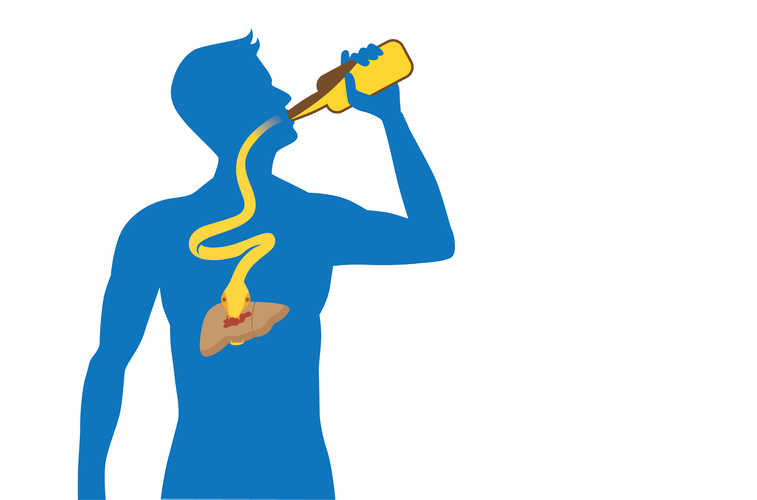Many evidence-based treatments can help people overcome alcohol addiction. For people living with a functioning alcoholic, Al-Anon Family Groups provide support for those affected by someone’s drinking. These types of groups create safe spaces for loved ones to discuss their problems with alcohol in a non-judgemental environment. It can be a great place to start if you’re finding opening up the discussion too difficult at home.
Do Free Yourself From Blame
They may be open to learning about different strategies for controlling or quitting the addictive behavior, without committing to a specific approach or even promising to make a change. Medical supervision during detox is crucial, as it ensures the safety of the individual and provides immediate care for serious complications like seizures or delirium tremens (DTs). Inpatient settings are often recommended for those with a history of heavy alcohol use or significant withdrawal symptoms. Medications may be administered to alleviate discomfort and manage withdrawal symptoms, and in some cases, to prevent relapse and maintain abstinence during the ongoing treatment for AUD.
- Guilt and shame6 can lead the person to label themselves as being “bad,” which prevents them from recovering.
- In her denial, she was sadly telling people if she was left alone to listen to her favorite singers and she would be OK.
- Dietary Guidelines define moderate drinking as one drink per day for women and up to two drinks per day for men.
Top Alcohol & Drug Treatment Centers in South Jersey

Protecting, rescuing, and secondary denial are all ways that people close to alcoholics enable their addictive behaviors. When a loved one is engaged in alcohol abuse, watching them spiral out of control can cause inner conflict for friends and family members. Support from family and friends is essential, but people who make up the individual’s support system also need to be sure that they are caring for themselves. Reaching out to support groups, seeking educational resources, and talking to a mental health professional can all be beneficial if you have a loved one who has an alcohol use problem. Societal and cultural factors can also play a role in an alcoholic’s denial.

Strategies for Self-Awareness and Change
It is crucial to approach individuals in denial with empathy and understanding. Effective strategies include addressing specific behaviors, reiterating concerns, and seeking permission to discuss the issue. Setting boundaries and offering support for professional help are key steps in assisting someone to overcome denial and commence their recovery journey. Recognizing the symptoms and stages of denial is the first step towards encouraging an individual to accept help and embrace a life of sobriety.
Educational Programs and Resources
Another form of defense can happen when a person struggling with addiction creates a group of people that allows them to continue to believe that their drinking is not a problem, nor the cause of their hard times. Someone in the throes of an alcohol addiction may refuse to acknowledge the connection between their problems and drinking. Denial can become a sort of defense mechanism for them, allowing them to continue on this destructive path. You, too, might realize that your relationship with alcohol is negatively affecting your life. An alcoholic in denial is not a bad person – they are very sick people who need firm but compassionate guidance to help them realize that they have a serious issue that will not go away. You may be wondering how to help the addict realize that they have a problem so they can get the help they what is alcoholism need.
Denial can be an important defense, but for alcoholics, it is dangerous.
An alcoholic may blame others or situational circumstances rather than take ownership of their behavior. For instance, they might say things like, “If my spouse didn’t nag me all the time, I wouldn’t need to drink,” or “It’s just because of the stress at work that I have to drink.” Researchers estimate that up to 50% of people who would benefit from personalized care remain unaware that resources are available. Don’t worry; we’ll also provide practical strategies for overcoming such alcoholism and denial denials—supportive steps you can take as someone wrestling with your own struggles or trying to assist a loved one seeking redemption.
Alcohol Withdrawal Symptoms: Detox, Timeline & Treatment
- Instead of focusing on what’s wrong with their behavior, focus on how it makes you feel.
- In this form of denial, a person acknowledges their heavy alcohol use but rejects the notion that it negatively affects themselves or others.
- Understanding the reasons behind alcoholism denial can shed light on why individuals refuse to acknowledge their drinking problem.
- When someone reaches a crisis point, sometimes that’s when they finally admit they have a problem and begin to reach out for help.
Because high-functioning alcoholics can still hide their internal struggles from the casual observer, people who are high-functioning alcoholics are often deeply in denial about the extent of their problem. Here, we take a look at some of the things that they may say to avoid confronting the truth. There may be very little you can do to help someone with AUD until they are ready to get help, but you can stop letting someone’s drinking problem dominate your thoughts and your life. It’s OK to make choices that are good for your own physical and mental health. Addiction can be viewed negatively by family members because of stigma7, which can make a person afraid to admit to loved ones that they have a problem. The alcoholic might fear that if they admit to having a problem and seek treatment, their loved ones will abandon them.

Leave a Reply